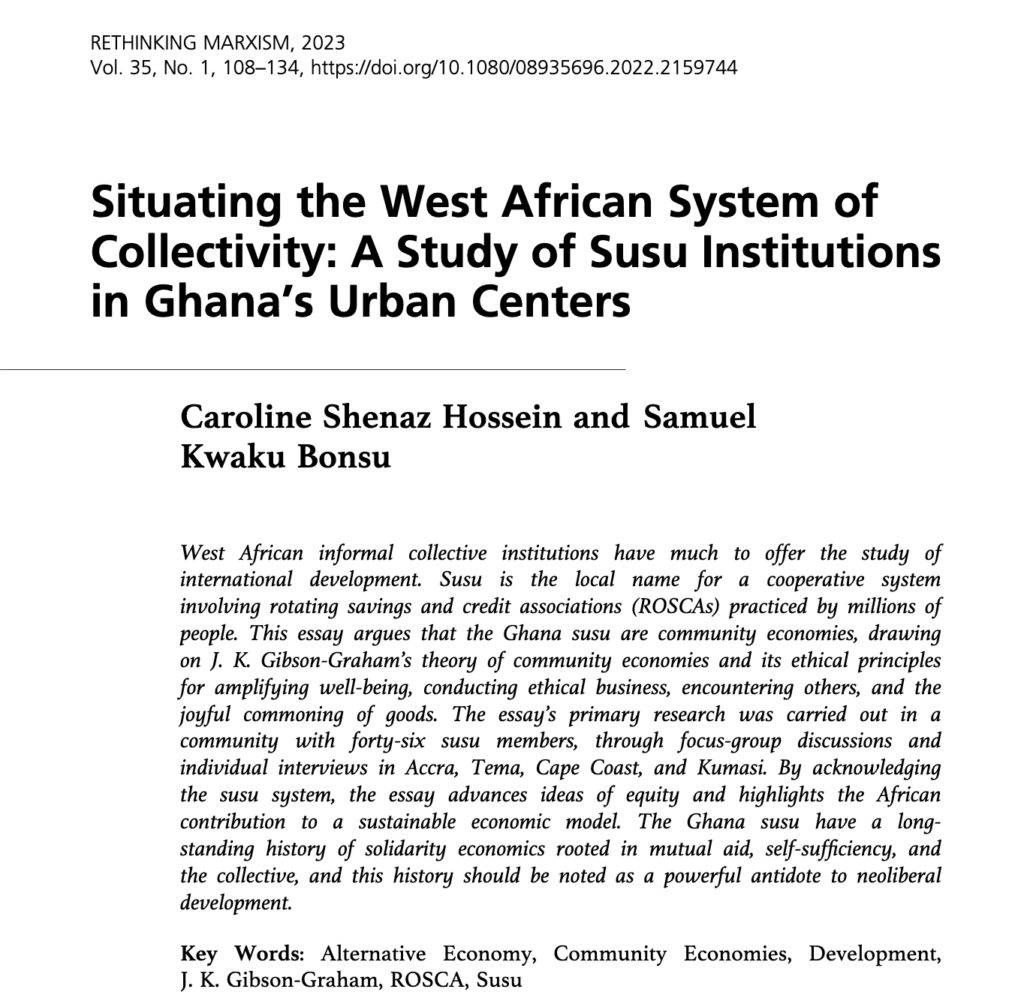West African informal collective institutions have much to offer the study of international development. Susu is the local name for a cooperative system involving rotating savings and credit associations (ROSCAs) practiced by millions of people. This essay argues that the Ghana susu are community economies, drawing on J. K. Gibson-Graham’s theory of community economies and its ethical principles for amplifying well-being, conducting ethical business, encountering others, and the joyful commoning of goods. The essay’s primary research was carried out in a community with forty-six susu members, through focus-group discussions and individual interviews in Accra, Tema, Cape Coast, and Kumasi. By acknowledging the susu system, the essay advances ideas of equity and highlights the African contribution to a sustainable economic model. The Ghana susu have a long-standing history of solidarity economics rooted in mutual aid, self-sufficiency, and the collective, and this history should be noted as a powerful antidote to neoliberal development.

